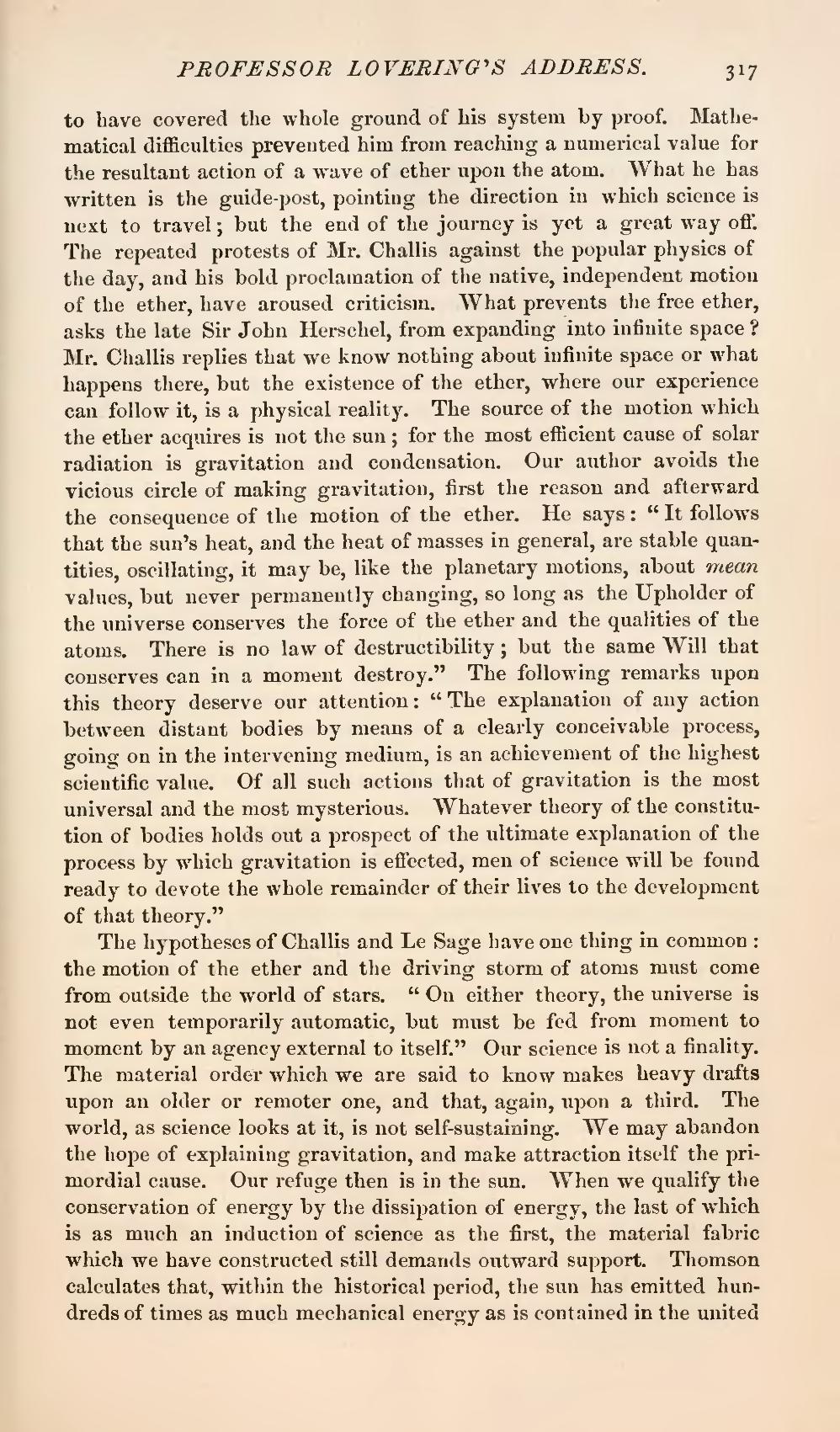to have covered the whole ground of his system by proof. Mathematical difficulties prevented him from reaching a numerical value for the resultant action of a wave of ether upon the atom. What he has written is the guide-post, pointing the direction in which science is next to travel; but the end of the journey is yet a great way off. The repeated protests of Mr. Challis against the popular physics of the day, and his bold proclamation of the native, independent motion of the ether, have aroused criticism. What prevents the free ether, asks the late Sir John Herschel, from expanding into infinite space? Mr. Challis replies that we know nothing about infinite space or what happens there, but the existence of the ether, where our experience can follow it, is a physical reality. The source of the motion which the ether acquires is not the sun; for the most efficient cause of solar radiation is gravitation and condensation. Our author avoids the vicious circle of making gravitation, first the reason and afterward the consequence of the motion of the ether. He says: "It follows that the sun's heat, and the heat of masses in general, are stable quantities, oscillating, it may be, like the planetary motions, about mean values, but never permanently changing, so long as the Upholder of the universe conserves the force of the ether and the qualities of the atoms. There is no law of destructibility; but the same Will that conserves can in a moment destroy." The following remarks upon this theory deserve our attention: "The explanation of any action between distant bodies by means of a clearly conceivable process, going on in the intervening medium, is an achievement of the highest scientific value. Of all such actions that of gravitation is the most universal and the most mysterious. Whatever theory of the constitution of bodies holds out a prospect of the ultimate explanation of the process by which gravitation is effected, men of science will be found ready to devote the whole remainder of their lives to the development of that theory."
The hypotheses of Challis and Le Sage have one thing in common: the motion of the ether and the driving storm of atoms must come from outside the world of stars. "On either theory, the universe is not even temporarily automatic, but must be fed from moment to moment by an agency external to itself." Our science is not a finality. The material order which we are said to know makes heavy drafts upon an older or remoter one, and that, again, upon a third. The world, as science looks at it, is not self-sustaining. We may abandon the hope of explaining gravitation, and make attraction itself the primordial cause. Our refuge then is in the sun. When we qualify the conservation of energy by the dissipation of energy, the last of which is as much an induction of science as the first, the material fabric which we have constructed still demands outward support. Thomson calculates that, within the historical period, the sun has emitted hundreds of times as much mechanical energy as is contained in the united
